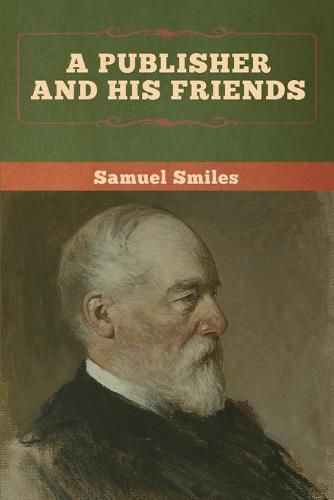Readings Newsletter
Become a Readings Member to make your shopping experience even easier.
Sign in or sign up for free!
You’re not far away from qualifying for FREE standard shipping within Australia
You’ve qualified for FREE standard shipping within Australia
The cart is loading…






This title is printed to order. This book may have been self-published. If so, we cannot guarantee the quality of the content. In the main most books will have gone through the editing process however some may not. We therefore suggest that you be aware of this before ordering this book. If in doubt check either the author or publisher’s details as we are unable to accept any returns unless they are faulty. Please contact us if you have any questions.
Samuel Smiles, (born Dec. 23, 1812, Haddington, Berwickshire, Scot.–died April 16, 1904, London), Scottish author best known for his didactic work Self-Help (1859), which, with its successors, Character (1871), Thrift (1875), and Duty (1880), enshrined the basic Victorian values associated with the gospel of work.
One of 11 children left fatherless in 1832, Smiles learned the meaning of self-reliance. Although he qualified in medicine at Edinburgh in 1832, he soon abandoned medical practice for journalism, moving to Leeds, where from 1838 to 1842 he edited the progressive and reformist Leeds Times. His radicalism was a practical application of the doctrines of the utilitarian philosophers ( philosophical radicals ) Jeremy Bentham and James Mill. He was a zealous advocate of material progress based on individual enterprise and free trade. From 1845 to 1866 he was engaged in railway administration, and in 1857 he published a life of the inventor and founder of the railways, George Stephenson. He followed this with Self-Help, with Illustrations of Character and Conduct, the outcome of a series of lectures on self-improvement given to young men in Leeds; 250,000 copies had been sold by the end of the century, and it was widely translated. Smiles wrote many other books, including Lives of the Engineers (3 vol., 1861-62; 5 vol., enlarged ed., 1874), a pioneer study in economic history; and an Autobiography (ed. by T. Mackay, 1905). (britannica.com)
$9.00 standard shipping within Australia
FREE standard shipping within Australia for orders over $100.00
Express & International shipping calculated at checkout
This title is printed to order. This book may have been self-published. If so, we cannot guarantee the quality of the content. In the main most books will have gone through the editing process however some may not. We therefore suggest that you be aware of this before ordering this book. If in doubt check either the author or publisher’s details as we are unable to accept any returns unless they are faulty. Please contact us if you have any questions.
Samuel Smiles, (born Dec. 23, 1812, Haddington, Berwickshire, Scot.–died April 16, 1904, London), Scottish author best known for his didactic work Self-Help (1859), which, with its successors, Character (1871), Thrift (1875), and Duty (1880), enshrined the basic Victorian values associated with the gospel of work.
One of 11 children left fatherless in 1832, Smiles learned the meaning of self-reliance. Although he qualified in medicine at Edinburgh in 1832, he soon abandoned medical practice for journalism, moving to Leeds, where from 1838 to 1842 he edited the progressive and reformist Leeds Times. His radicalism was a practical application of the doctrines of the utilitarian philosophers ( philosophical radicals ) Jeremy Bentham and James Mill. He was a zealous advocate of material progress based on individual enterprise and free trade. From 1845 to 1866 he was engaged in railway administration, and in 1857 he published a life of the inventor and founder of the railways, George Stephenson. He followed this with Self-Help, with Illustrations of Character and Conduct, the outcome of a series of lectures on self-improvement given to young men in Leeds; 250,000 copies had been sold by the end of the century, and it was widely translated. Smiles wrote many other books, including Lives of the Engineers (3 vol., 1861-62; 5 vol., enlarged ed., 1874), a pioneer study in economic history; and an Autobiography (ed. by T. Mackay, 1905). (britannica.com)